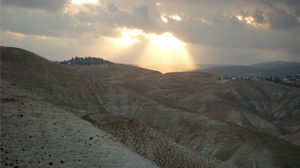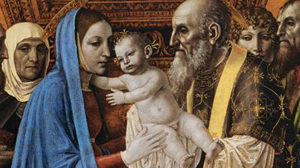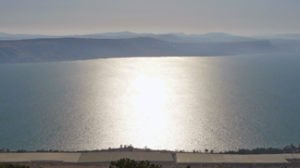Reflection:
“The LORD forgave him his sins
and exalted his strength forever.”
“The king was deeply distressed,
but because of his oaths and the guests
he did not wish to break his word to her.”
Today our readings present two tales of kings. In the first, a reading from the prophet Sirach, we hear a grand summation of the kingship of David. David excelled in every measure of a king at that time. He was a mighty warrior, a wise judge, a fine artist and his people responded with great praise.
King Herod, on the other hand, is presented as a weak and hedonist ruler. He puts John in prison because John had the audacity to speak truth to power. It is easy to see the contrast between the two and their respective styles of leadership.
However, if we look more deeply beneath the surface, there may be more to find. Very few of us will ever find ourselves leading a nation (thank God!). And yet, many of us often find ourselves in positions of leadership. Parish councils, RCIA, committee upon committee, these are all positions that require someone to step forward and demonstrate leadership. Unfortunately, being human, we may find ourselves making mistakes when we serve others and the community around us. So how did these two kings handle this most human of traits?
In writing about David, Sirach says, “The LORD forgave him his sins.” Earlier in the book of 2 Samuel, when David is confronted with his sin, he publicly repents. He doesn’t try to hide it or even wait to see if punishment is coming. Once he recognizes his transgression, he admits it to all.
Herod deals with a similar situation in a very different manner. When he sees his error (promising more than he should), he defends his pride by continuing down the path he is on, rather than admit his mistake in front of those who, at least to his face, sing his praises.
One of the most powerful traits in a leader is humility. Owning our humanity and being willing to be seen as less than perfect is not often found in those seeking public office, whether at a local or national level. My prayer for myself today is that I have the strength to admit my shortcoming, both God and those around me, so that I can move forward to serve them better.
Talib Huff is a presenter and volunteer at Christ the King Retreat Center in Citrus Heights, Ca. He may be reached at [email protected].








